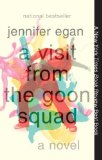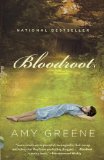Summary | Excerpt | Reviews | Beyond the book | Read-Alikes | Genres & Themes | Author Bio

There's something endearingly old-fashioned about Steve Earle's debut novel I'll Never Get Out of This World Alive, a tale with a straightforward beginning, middle, and end, punctuated by spectral showdowns and heavenly healings. While it will likely appeal most to music fans eager to see how this iconoclastic singer/songwriter (and author of the 2001 short story collection Doghouse Roses) will fare in the literary sweepstakes, I'll Never Get Out of This World Alive deserves praise for the way it captures both the squalor and the community spirit of a down-and-out enclave populated with lively, believable characters. That one of them is dead only adds to the festivities.
And make no mistake, this story is a festive one, in the way that empty streets littered with confetti and beer bottles are festive. The broken souls who inhabit the South Presa Strip - addicts, drug dealers, prostitutes, gang members - form a family anchored by Doc Ebersole, a man who trades medical favors for money to buy heroin from his teddy bear of a dealer, Big Manny. Doc runs his makeshift ER out of the Yellow Rose Guest Home, a ramshackle boarding house presided over by Marge, "a big-boned, snuff-dipping, fifty-something redhead" and her girlfriend, Dallas. Along with Teresa, the local bartender, and Hugo, a world-weary vice detective, this ensemble drifts from day to day - bound by substances, sure - but also by a genuine affection for each other's flaws and a vigilance on each other's behalf. These tenuous connections, however, solidify when Graciela enters their lives. Pregnant and newly arrived from Mexico, the young woman with the healing hands becomes not just Doc's nurse and companion but also a catalyst for painful yet necessary changes within a neighborhood that has otherwise lost hope.
With all this metamorphosis going on, it is no surprise that Earle uses monarch butterfly migration to symbolize Graciela's personal development; she discovers her purpose in life - a controversial epiphany - which Earle tackles with sympathetic insight. While some of Doc's patients seek him out to bandage the wounds they've sustained in drunken brawls, the majority of them are prostitutes in need of abortions. At Doc's side, Graciela, too, learns how to perform the procedure: "She'd watched and she'd listened and she knew what to do when a girl was in trouble, and no good could come of her bringing an innocent life into an unkind corner of the world."
Naturally, Doc and Graciela's profession pits them against the book's one true villain, a conniving priest named Father Killen, who has gotten wind of Graciela's healing powers and wants to "save" her from misusing her gift to help girls in trouble on the South Presa Strip. In one particularly effective scene, Father Killen comes to the Yellow Rose when Graciela is alone in the house; their exchange plays out like a Grimm's fairy tale, with Graciela as the demure maiden on one side of the door and the priest as the salivating wolf on the other. Conversely, their eventual showdown, with all the key characters present, unfolds like the finale of a B movie western, but its cinematic melodrama actually seems fitting and paves the way for the more restrained coda.
But what of the ghost of Hank Williams? Rest assured, the legendary country crooner receives plenty of page time. Shortly into the first chapter, Doc goes down to the local bar, where Hank's voice suddenly pours out of the jukebox: "If you sat there long enough, some asshole would play a Hank Williams record. Ol' Hank dead and buried beneath six feet of rusty red Alabama dirt for the better part of a decade now, still taking their nickels and making them cry." Hank proceeds to harangue Doc every time that Doc shoots up; whining, begging, insulting, sniveling, and cajoling, Hank wields even more power over Doc dead than alive, and his poltergeist-like sensibilities provide comic relief as well as highlight Doc's own sense of regret for his role in Hank's fatal overdose. Hank, of course, also resents Graciela, whose beauty and talents threaten to overshadow his hold on Doc.
In the end, Earle's confident wrangling of this material coupled with his empathy for his hardscrabble characters assures a rollicking read. I'll Never Get Out of This World Alive also acts as a sort of time machine, transporting us to an era on the brink of cultural and political upheaval, as the honky-tonk sorrow of Hank Williams's music gives way to the anguish of John F. Kennedy's assassination, the country's deeper involvement in the Vietnam War, and the struggles of the civil rights and women's liberation movements. Earle sprinkles hints of these changes throughout the book, creating a larger backdrop for the poignant individual struggles of the denizens of the South Presa Strip.
![]() This review was originally published in The BookBrowse Review in June 2011, and has been updated for the
May 2012 edition.
Click here to go to this issue.
This review was originally published in The BookBrowse Review in June 2011, and has been updated for the
May 2012 edition.
Click here to go to this issue.

If you liked I'll Never Get Out of This World Alive, try these:

by Jennifer Egan
Published 2011
A Visit from the Goon Squad is a book about the interplay of time and music, about survival, about the stirrings and transformations set inexorably in motion by even the most passing conjunction of our fates. Sly, startling, exhilarating work from one of our boldest writers.

by Amy Greene
Published 2011
Named for a flower whose blood-red sap possesses the power both to heal and poison, Bloodroot is a stunning fiction debut about the legacies—of magic and madness, faith and secrets, passion and loss—that haunt one family across the generations, from the Great Depression to today.
It was one of the worst speeches I ever heard ... when a simple apology was all that was required.
Click Here to find out who said this, as well as discovering other famous literary quotes!
Your guide toexceptional books
BookBrowse seeks out and recommends the best in contemporary fiction and nonfiction—books that not only engage and entertain but also deepen our understanding of ourselves and the world around us.